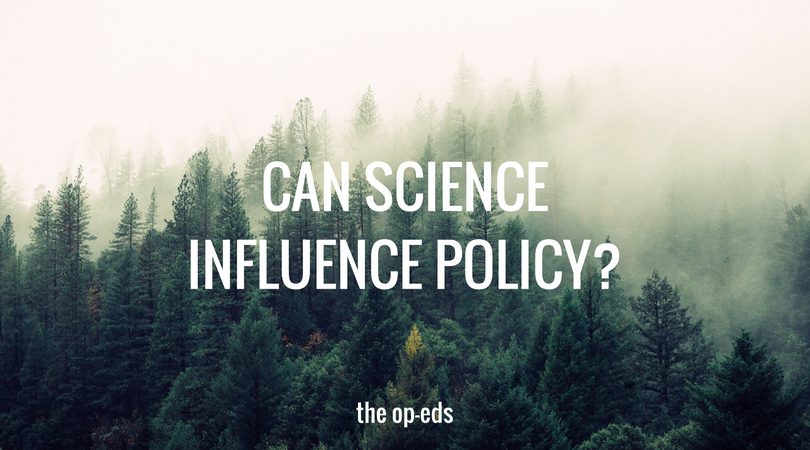In the last few months, I have made an honest effort to stay in the know regarding United States politics. As I have grown in my awareness, I have been prompted to think about communities, motives, and beliefs that form our political processes. Particularly, I concern myself most frequently with the issue of climate change: the President’s disbelief for the dilemma, and how the country’s policies have been swayed.
The Op-Eds are my take on some current issue I’ve had on my mind. They are written in a semi-academic fashion, so below, I will link my sources, often both scholarly articles and popular news outlets. Occasionally I’ll leave some additional resources if you’re interested in learning more. These are my own opinions, and I’m interested in hearing yours in the comments below. If you have a topic you’d like me to research and discuss, please contact me!
Prominent political theory pieces outline Environment as an important consideration in the policy processi – what are the social concerns of America, which prompted the election of an anti-climate change candidate? What are the economic backlashes of acknowledging climate change as a real, pressing problem? Where do we need to be, as a united people, to say that we will support those communities that may be negatively impacted by such an acknowledgement? These questions all flow in my mind into the roll of the media and misleading public opinion polls, which shape our political understandings, and thus the political motions that are supported by the American public. The national mood seems to be increasingly worried about financial stability and national security, evident from historically low presidential approval ratingsii. Both of these concerns can be related to climate in some way – communities are threatened by an increase in extreme weather conditions, difficulty in relying on seasonal agriculture, and shifts to environmentally conscious industries from historic coal hubs and the like.
As a scientist, I am often discouraged by the misunderstanding of climate change and that consequential disdain for carbon taxes, discouragement of climate education in schools, or even the exit of the Paris Climate Agreement. I often blame poor communication of scientific fact to the masses; however, some scholars point out that scientific fact is arguably not fact at alliii, iv, v. For someone to truly trust science, that science must be totally transparent, reasonable, seasonable… all the things that climate science is often not. Many people do not feel they have the knowledge to fully understand the causes and impacts of climate change – while we are a society that is wholly impacted, we are also a society of bankers, chefs, realtors, creators … largely, a society not formally trained to conceptualize the craziness that is climate change. Many of us are worried, but there are also plenty of people who still do not believe our climate is changing. I understand that situation to an extent, though: if you are unaccustomed to analytical scientific thought, you will resist conclusions that do not feel logically reasonableiii. Getting to the conclusion requires some methodology that is foreign. From the most basic standpoint, melting icecaps and shifting crop cycles are not rational or realistic results of humans’ abuse of fossil fuels and immense waste.
Ultimately, it seems to me that education is the best tool to fight climate change, and digestibility of educational information is key. It isn’t fair we are encouraging our country to go out and fight for something that much of America does not understand. We can show them the results, but we need to be articulating the why. And at the end of the day, if we want a change, we all need to be firmly behind climate change. Policy cannot reflect science until that science is wholly understood.
★★★★★★★★★★★★★★★★★★★★★★★★
[i] Birkland, Thomas A. An Introduction to the Policy Process: Theories, Concepts, and Models of Public Policy Making. Routlege, 2014.
[ii] Gallup Polls, Presidential Approval
[iii] Gauch, Hugh G. Scientific method in practice. Chapter 5. Cambridge University Press, 2003.
[iv] Rametsteiner, Ewald, et al. “Sustainability indicator development—Science or political negotiation?.” Ecological indicators 11.1 (2011): 61-70.
[v] Otto, Shawn Lawrence. “Good Science Always Has Political Ramifications.” Scientific American, 24 Nov. 2011
An interesting read to supplement this topic could be The Death of Expertise: The Campaign Against Established Knowledge and Why It Matters . I haven’t read it yet but it’s on my list!

